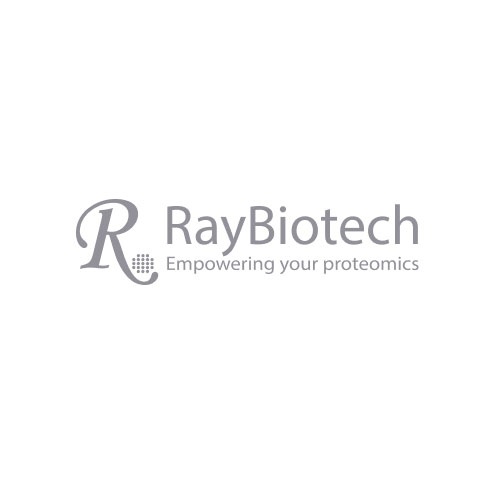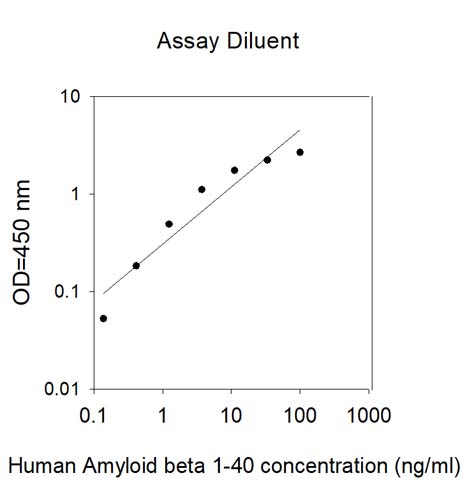Human Amyloid beta 1-40 ELISA Kit
RayBio® Human Amyloid beta 1-40 ELISA Kit for cell culture supernatants, plasma, and serum samples.
Lead time: Typically ships within 1-2 business days. No Friday shipments.
Product Description
Specifications
| Size | 1 Plate Kit, 2 Plate Kit, 5 Plate Kit |
|---|---|
| Species | Human |
| Accession Number | P05067 |
| Gene Id | 351 |
| Gene Symbols | APP|A4|AD1 |
| Protein Name / Synonyms | Amyloid beta A4 protein (ABPP) (APPI) (APP) (Alzheimer disease amyloid protein) (Cerebral vascular amyloid peptide) (CVAP) (PreA4) (Protease nexin-II) (PN-II) [Cleaved into: N-APP Soluble APP-alpha (S-APP-alpha) Soluble APP-beta (S-APP-beta) C99 Beta-amyloid protein 42 (Beta-APP42) Beta-amyloid protein 40 (Beta-APP40) C83 P3(42) P3(40) C80 Gamma-secretase C-terminal fragment 59 (Amyloid intracellular domain 59) (AICD-59) (AID(59)) (Gamma-CTF(59)) Gamma-secretase C-terminal fragment 57 (Amyloid intracellular domain 57) (AICD-57) (AID(57)) (Gamma-CTF(57)) Gamma-secretase C-terminal fragment 50 (Amyloid intracellular domain 50) (AICD-50) (AID(50)) (Gamma-CTF(50)) C31] |
| Quantitative/Semi-Quantitative | Quantitative |
| Specificity | This ELISA antibody pair detects human Amyloid beta 1-40. It has crossreactivity with mouse Amyloid beta 1-40. |
| Compatible Sample Types | Cell Culture Supernatants, Plasma, Serum |
| Solid Support | 96-well Microplate |
| Method Of Detection | Colorimetric |
| Design Principle | Sandwich-based |
| Sensitivity | 0.1 ng/ml Need more sensitivity? Check out the new BIQ-ELISA™ kit for this target. Still not enough? Then your answer is our Ultrasensitive Biomarker Testing Service powered by Simoa™ technology. |
| Detection Range | 0.1 ng/ml - 100 ng/ml |
| Recommended Dilution (Serum/Plasma) | 2 fold |
| Estimated Lead Time | 1-2 business days |
| Shipping Type | Blue ice |
| Storage | ≤-20°C |
Risk-Free Guarantee
We offer a 100% guarantee on all ELISA kits and membrane cytokine arrays.
Learn More
Amazon Gift Cards!
$5 Amazon gift card in every kit box purchased.
-
Great productThe kit worked exceedingly well.
from Salk Institute,
on






